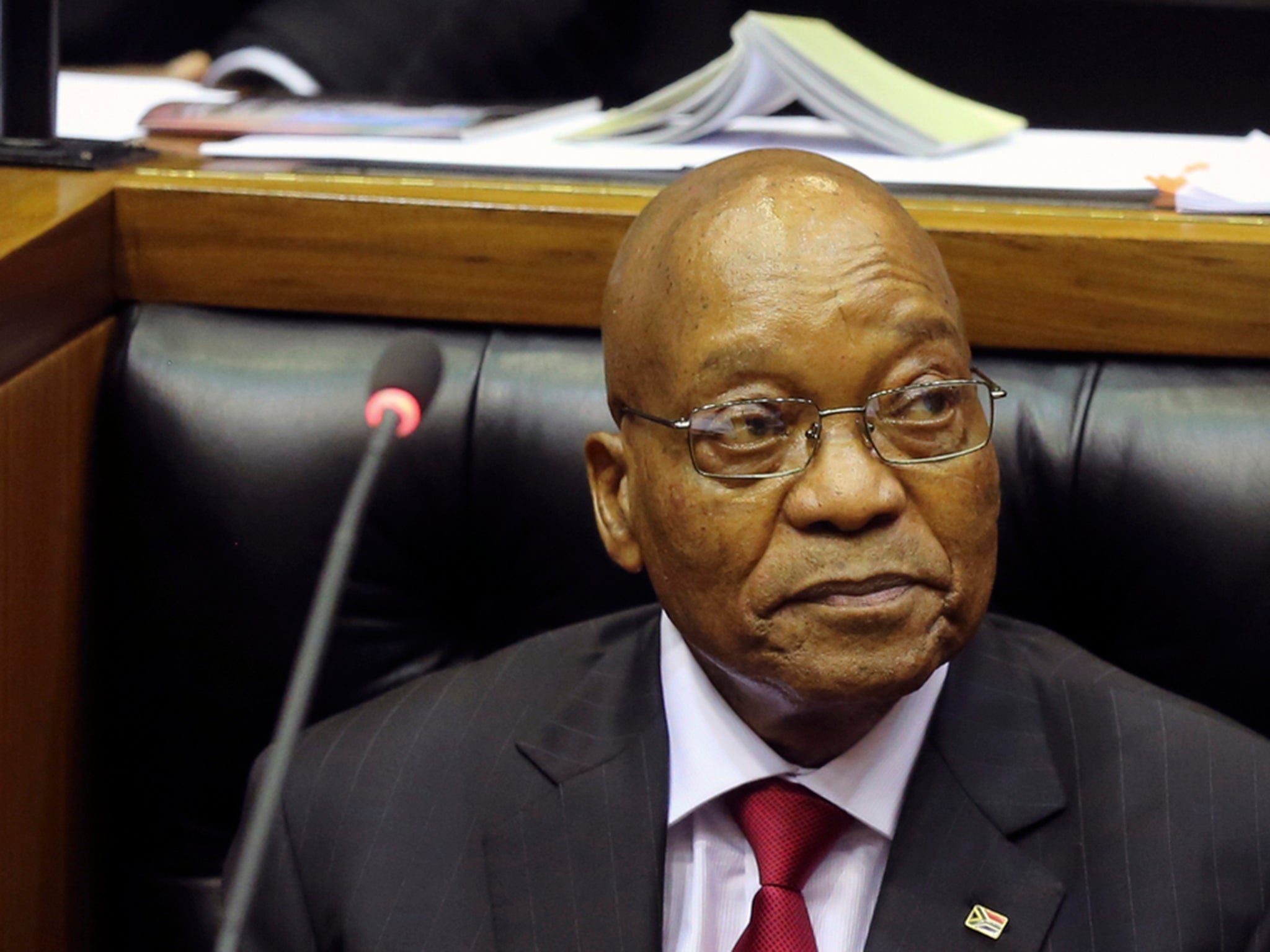South Africa's Supreme Court of Appeal reinstates corruption charges against President Jacob Zuma
Decision piles renewed pressure on head of state

Your support helps us to tell the story
From reproductive rights to climate change to Big Tech, The Independent is on the ground when the story is developing. Whether it's investigating the financials of Elon Musk's pro-Trump PAC or producing our latest documentary, 'The A Word', which shines a light on the American women fighting for reproductive rights, we know how important it is to parse out the facts from the messaging.
At such a critical moment in US history, we need reporters on the ground. Your donation allows us to keep sending journalists to speak to both sides of the story.
The Independent is trusted by Americans across the entire political spectrum. And unlike many other quality news outlets, we choose not to lock Americans out of our reporting and analysis with paywalls. We believe quality journalism should be available to everyone, paid for by those who can afford it.
Your support makes all the difference.South Africa’s Supreme Court of Appeal (SCA) has upheld a High Court ruling to reinstate corruption charges against Jacob Zuma relating to before he became President.
Zuma said he was “disappointed” by the court’s decision, adding in a statement that he expects the National Prosecuting Authority (NPA) to consider unspecified representations on the case before deciding whether to prosecute him.
The head of the prosecuting authority at the time set aside the charges in April 2009, paving the way for Zuma – who has faced and denied numerous corruption allegations made since then – to run for president later that year. But the High Court ruled in April 2016 that the charges should be reinstated.
Rejecting an appeal against that decision brought by Zuma and the NPA, Supreme Court Judge Lorimer Leach said it was “irrational” for the NPA to have set the charges aside – the same word used by the High Court.
“It is difficult to understand why the present regime at the NPA considered that the decision to terminate the prosecution could be defended,” Mr Leach said, outlining the unanimous ruling.
The NPA must now decide whether to reinstate the charges, which relate to a 30 billion rand ($2bn) government arms deal arranged in the late 1990s. It was unclear when such a decision might be taken.
NPA spokesperson Luvuyo Mfaku said prosecutors would need to consider the judgment but would “at all times do the right thing within the confines of the rule of law and in the interest of proper administration of justice”.
The rand extended gains against the dollar after the Supreme Court decision.
Zuma has faced corruption allegations since taking office, most recently over leaked emails that suggest his friends the Gupta family may have used their influence to secure lucrative state contracts for their companies.
Reuters has not independently verified the emails, and Zuma and the Guptas have consistently denied any wrongdoing.
Mmusi Maimane, leader of the main opposition, the Democratic Alliance, said he would write to the National Director of Public Prosecutions, Shaun Abrahams, to demand he indict Zuma.
“The charges have been formulated and the evidence is ready. We now await a trial date,” Mr Maimane told reporters.
Asked by reporters whether Zuma should resign, the African National Congress (ANC) Secretary General Gwede Mantashe said the party would allow that process to take its course.
“The first thing is whether the NPA will decide to charge the President,” he said. “You’re putting the cart before the horse.”
Analysts said the ruling could diminish Zuma’s influence over which candidate the ANC chooses to succeed him as leader at a conference in December. The 75-year-old can remain as state President until 2019.
“It is going to make it a lot more difficult for his camp to get their presidential candidate elected,” said Gary van Staden, political analyst with NKC African Economics.
National prosecutor Mokotedi Mpshe’s decision in 2009 to drop the 783 charges against Zuma in what has become known as the “spy tapes” case was based on phone intercepts presented by Zuma’s legal team. They suggested the timing of the charges in late 2007 may have been part of a political plot to stop the then Deputy President running for the top job.
Zuma was linked to the 1990s arms deal through his former financial adviser, who was jailed for corruption.
Analysts said the credibility of Zuma and the NPA were in question after the ruling, and one lawyer, Ulrich Roux, who speaks to media as a legal analyst, said “a private prosecution could be instituted” if charges are not brought.
Calls for Zuma to step down have increased since he removed Pravin Gordhan as Finance Minister in March, which hit South African financial assets and helped tip its credit ratings into “junk” territory.
Reuters
Join our commenting forum
Join thought-provoking conversations, follow other Independent readers and see their replies
Comments